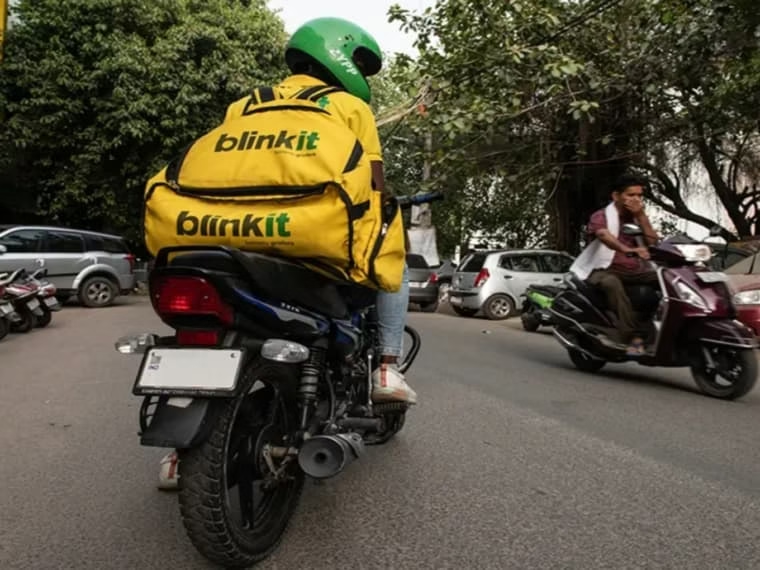Let’s get one thing straight: India’s gig economy does have serious flaws. Surveillance, weak grievance systems, opaque algorithms, and the misclassification of workers, especially women in the informal sector, are real problems that need fixing. But what’s missing from the louder voices of protest is one crucial truth: gig work is here to stay. Consumer habits, app-driven services, and tech-led efficiency aren’t vanishing. The better question is, how do we make gig work safer, fairer, and more secure?
We live in a world where people book a cab with a tap, get dinner delivered in 30 minutes, or hire a beautician without stepping out. That shift in consumer behavior isn’t going to reverse. What’s also real is the opportunity that gig platforms offer, especially to those who need flexibility, have limited formal education, or are juggling care work.
The Periodic Labour Force Survey shows a rise in female labour participation driven by self-employment and platform work. That’s not nothing. For millions of women who would otherwise remain unemployed due to rigid 9-to-5 jobs or family restrictions, platforms are a gateway to income.

Let’s stop pretending gig work is some exploitative anomaly. It’s now a structural part of India’s service economy, like kirana stores or cable networks once were.
Yes, misclassification hurts workers. Many platforms use the “independent contractor” label to dodge basic protections like insurance or sick leave. Algorithmic penalties and ID blocks with no recourse are arbitrary and cruel. Especially for women, surveillance and customer harassment are real and underreported dangers.
But there’s a growing acknowledgment of these issues, and corrective steps are already underway.
- NITI Aayog has publicly supported social security for gig workers and proposed the creation of a Platform Workers’ Welfare Board.
- The Code on Social Security, 2020, already legally recognizes gig and platform workers, entitling them to coverage under schemes related to life and disability insurance, health, maternity, and old age protection.
- In 2023, e-Shram portal was expanded to include gig workers, giving them access to accident insurance and the ability to link to welfare schemes.
- The Digital Personal Data Protection Act (DPDPA), while imperfect, introduces for the first time serious guardrails on consent, data collection, and accountability mechanisms.
Is it enough? No. But to claim that nothing is being done is just false.
Here’s where the government and gig platforms can go from patchwork to policy:
1. National Gig Security Stack:
A portable, transferable framework where every gig worker gets:
- Accident insurance
- Basic health cover
- PPF-linked savings account
- Term insurance Funded jointly by platform companies and a small GST-linked welfare surcharge. If a worker switches from Zomato to Blinkit or Urban Company, benefits move with them—no paperwork.
2. Grievance Redressal Authority for Gig Work:
A fast, app-integrated complaint mechanism with binding resolutions. Human intervention, not AI-based rejection. Penalties for platforms that block IDs without review.
3. Gender-Safe Platform Mandates:
If a woman has to enter a stranger’s house for work, platforms must:
- Provide 24/7 helpline support
- Allow women to block abusive customers without penalty
- Offer insurance against sexual harassment
And yes—make POSH protections compulsory, even for “contractors.”
4. Algorithmic Fairness Standards:
A legal requirement for transparency in rating systems, and a “3-strike review” before deactivation. One bad review shouldn’t destroy someone’s livelihood.
It sounds great to call for full employee rights. But forcing platforms to reclassify all gig workers as employees will kill flexibility for workers and cost millions of jobs. Many prefer the control to log in and out as they please. Women especially say that strict shift-based formats would push them out entirely.
Instead, India needs a third category, independent but protected. Give workers rights without forcing outdated employment models onto a 21st-century workforce.
Much of the surveillance built into platforms, GPS tracking, service monitoring, delivery time logs, began as consumer protection. The intent was to prevent fraud, ensure timely services, and keep customers safe. The problem is that it grew unchecked.
The DPDPA needs an amendment to explicitly define what is acceptable in platform work surveillance. Real-time location while on duty? Fine. Constant monitoring after log-out? Not fine. Consent buried in 60-page terms? Illegal.
Painting all gig work as oppressive ignores the real-world choices of millions who sign up daily. The reason they do is simple: they earn. They may not earn enough, but it beats unemployment.
Rather than burning down the model, the goal should be to build in safeguards. Give workers visibility into how they’re rated, ensure portability of protections, and enforce human-led reviews for disputes.
India’s gig economy is not some dystopian nightmare created to crush workers. It’s a new mode of work, born of digital reality. But yes, it needs stronger guardrails. The government must now move from recognition to regulation, with teeth.
Instead of romanticizing a past that doesn’t return or demonizing every tech platform, it’s time to push for policies that balance innovation with dignity. The solution isn’t to shut gig work down. It’s to make it work better.


Leave a Reply